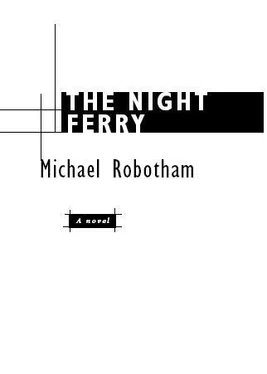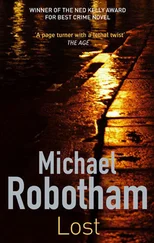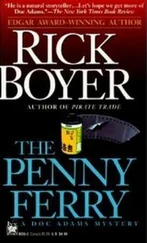I tell him about my grandfather who was born in a small village in Gujarat and joined the British Army at fourteen where he became a kitchen hand and then a chef. After the war a major in the Royal Artillery brought him back to England to cook for his family. My grandfather traveled on a steamer that took three weeks to get from Bombay to England. He came alone. That was in 1947.
He earned three pounds a week, but still managed to save enough for my grandmother to join him. They were the first Indians in Hertfordshire but they later moved to London.
My only memory of my grandparents is a story they told me about their first winter in England. They had never seen snow and said it looked like a scene from a Russian fairy tale.
I don’t always understand irony, but my grandfather spent his entire life trying to become white only to be crushed by an overturned coal truck on Richmond Hill that painted him as black as soot.
Forbes has finished a second bottle of wine and grown melancholy.
“I have to use the bathroom,” he says.
I watch him weave between tables, leading with his left shoulder and then his right. On his way back he orders a brandy. He talks about growing up in Milton Keynes, a planned town that didn’t exist before the 1960s. Now he lives in London. He doesn’t mention a wife but I know there’s one at home.
I want to talk to him about the illegals before he gets too drunk. “Have you managed to trace the truck?” I ask.
“Shipping containers have codes. They can be tracked anywhere in the world.”
“Where did it come from?”
“The truck left a factory on the outskirts of Amsterdam early yesterday. The locks are supposed to be tamperproof.”
“How did you know Hassan Khan’s name?”
“He had papers. We found a cloth bag tied around his waist. According to the Dutch police, he arrived in Holland nineteen months ago from Afghanistan. He and a group of asylum seekers were living above a Chinese restaurant in Amsterdam.”
“What else was in the bag?”
Forbes lowers his eyes. “Drawings and photographs. I could show them to you…” He pauses. “We could go to my room.”
“Alternatively, you could bring the bag downstairs,” I suggest.
He runs his socked foot up my calf and gives me his bad little boy smile.
I want to say something disagreeable but can’t find the words. I’m never good at put-downs. Instead I smile politely and tell him to quit while he’s ahead.
He frowns. He doesn’t understand.
For the love of God, you’re not even attractive. Call your wife and wish her good night.
Forbes stumbles as he climbs the stairs. “I guess we hit the old vino pretty hard, eh?”
“One of us did.”
He fumbles in his pocket for his key and makes several unsuccessful attempts to find the keyhole. I take it from him. He collapses on the bed and rolls over, spread-eagled like a sacrifice to the demon god of drink.
I take off his shoes and hang his jacket over the chair. The calico bag is on the bedside table. As I leave I slide the security bar across the door frame so that the door doesn’t close completely.
Back in my room I call Ruiz and “New Boy” Dave. Dave wants to come and get me. I tell him to stay put. I’ll call him in the morning.
Fifteen minutes later I go back to Forbes’s room. The door is still ajar and he’s snoring. I cross the floor, listening for a change in his breathing. My fingers close around the calico bag. He doesn’t stir.
Suddenly, there’s another sound. A singsong ring tone.
I drop to the floor and crouch between the radiator and the curtain.
If Forbes turns on the lamp he’ll see me or he’ll notice that the bag is missing.
Rolling half out of bed, he reaches for his jacket, fumbling with his mobile.
“Yeah. I’m sorry, babe, I should have called. I got in late and I didn’t want to wake you or the kids…No, I’m fine, not drunk. Just a few glasses…No, I didn’t see the news tonight…That’s really great…Yeah…OK…I’ll call you in the morning…Go to sleep now…Love you too.”
He tosses the phone aside and stares at the ceiling. For a moment I think he’s falling back to sleep until he groans and rolls out of bed. The bathroom light blinks on. Behind him, my hiding place is neatly framed by the radiance. He drops his boxers and urinates.
Sliding out of the light, I cross the floor and ease the door shut behind me. Dizzy and trembling, I have broken one of Ruiz’s fundamental rules: when under stress always remember to breathe.
Back in my room, I tip the contents of the calico bag onto the bed. There is a pocketknife with one broken blade and the other intact, a small mirror, a medicine bottle full of sand, a charcoal drawing of two children and a battered circular biscuit tin.
Every object is significant. Why else would he carry them? These are the wordly possessions of a sixteen-year-old boy. They can’t possibly breathe life into his lungs or tell me his fears and desires. They aren’t enough. He deserves more.
The biscuit tin contains a tarnished military medal and a black-and-white photograph folded in half. It appears to show a group of workers standing in front of a factory with a corrugated-iron roof and wooden shutters on the windows. Packing crates are stacked against the wall, along with drums and pallets.
There are two lines of workers. Those in the front row are sitting on stools. At the center is a patriarch or the factory owner in a high-backed chair. Ramrod straight, he has a stern countenance and a far-off stare. One hand is on his knee. The other is missing and the sleeve of his coat is tied off at the elbow.
Beside him is another man, physically similar, perhaps his brother. He is wearing a small fez and has a neatly trimmed beard. He also is missing a hand and his left eye appears to be an empty socket. I glance along the two rows of workers, many of who are maimed or crippled or incomplete. There are people on crutches, others with skin like melted plastic. A boy in the front row is kneeling on a skateboard. No, not kneeling. What I first imagine are his knees, poking out from beneath short trousers, are the amputated stumps of his thighs.
None of the workers is smiling. They are olive-skinned men with blurred features and no amount of magnifying will make the image any clearer or the men appear any less stiff and glowering.
I put the photograph back in the tin and examine the rest of the curios and ornaments. The charcoal drawing is creased at the corners. The two children, a boy and a girl, are about six and eight. Her arm is around his shoulders. She has a high forehead and a straight part in her hair. He looks bored or restless, with a spark of light in his eyes from an open window. He wants to be outside.
The paper is soft in my fingers. A fixative has been sprayed on the charcoal to stop it smudging. In the bottom left-hand corner there is a signature. No, it’s a name. Two names. The drawing is of Hassan as a young boy and his sister, Samira.
Lying back, I stare at the ceiling and listen to the deep night. It is so quiet I can hear myself breathing. What a beautiful sound.
This is a story of parts. A chronicle of fictions. Cate faked her pregnancy. Brendan Pearl ran her and Felix down. Her doctor lied. Donavon lied. An adoption agency lied. People are being trafficked. Babies are being bought and sold.
I once read that people caught in avalanches can’t always tell which way is up or down and don’t know which direction to dig. Experienced skiers and climbers have a trick. They dribble. Gravity shows them the way.
I need a trick like that. I am submerged in something dark and dangerous and I don’t know if I’m escaping or burying myself deeper. I’m an accidental casualty. Collateral damage.
Читать дальше












